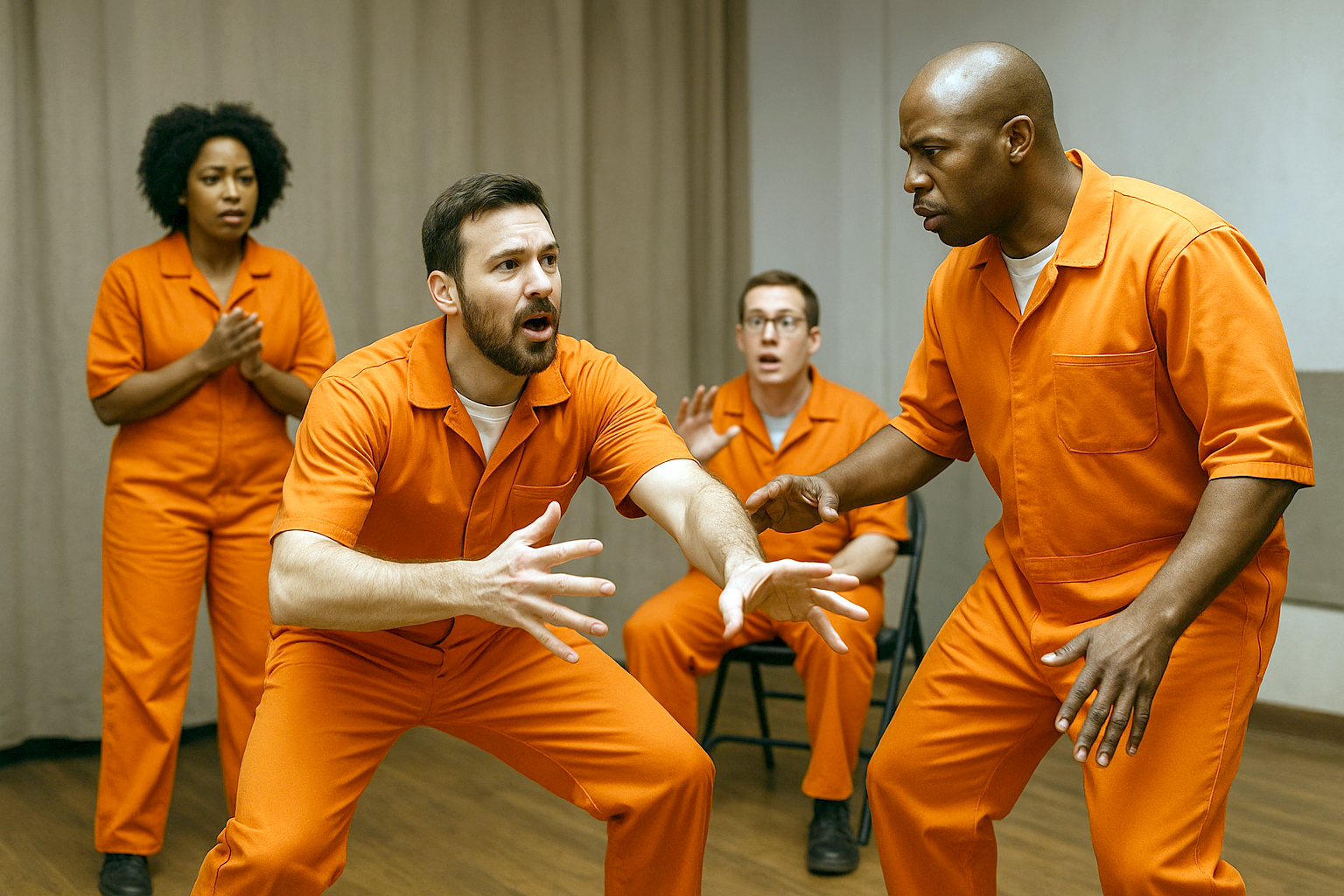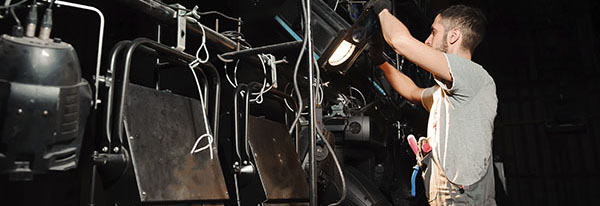Second acts: ex-prisoners taking the stage
1st November 2025
There’s been a lot of discussion in the industry press recently about a new initiative that supports ex-offenders stepping into entry level or hard to fill theatre roles when they leave prison.

Created in 2025, the new Second Stage charity initiative offers theatre training, mentoring and work placements to those leaving the criminal justice system. Set up by independent producer Edward Snape and marketing executive Jo Hutchison, Second Stage will provide a "conducive and stimulating environment for those leaving prison".
Snape said: "I have always felt that the theatre industry is brilliant in welcoming people from all walks of life and continues to strive to be increasingly inclusive to all.” He also said it was a “perfect opportunity” to not only support ex-offenders through their rehabilitation and transition into work but also address the chronic skills shortage in the theatre industry.

Companies like Synergy Theatre Project and Clean Break, also with a focus on inspiring and changing the lives of those in prison, have already proven how powerful this ground-breaking work can be.
It is a topic that is creating both excitement and unease in the industry. Can the arts really offer a second chance to people with criminal records?
 For us, theatre is all about transformation and a place where stories are told. For someone coming out of prison, joining an initiative like this can be life changing. It’s a chance to be part of a community again and rediscover a sense of purpose. Many individuals leave prison with untapped skills that have never been recognised or nurtured in the right way.
For us, theatre is all about transformation and a place where stories are told. For someone coming out of prison, joining an initiative like this can be life changing. It’s a chance to be part of a community again and rediscover a sense of purpose. Many individuals leave prison with untapped skills that have never been recognised or nurtured in the right way.
Our Artistic Director Rosemary Hill used to teach a drama class to Category A prisoners. She says: “It was well attended as prisoners liked to get out of their cells. I taught a prisoner who went on to write plays. He had a real talent for writing dialogue".
"One day he likened being a director to “doing a job”! He said both required good organisation and precision. Everyone had to know their “exits and entrances” and exactly what they were doing. They had to work as a team. I was a bit taken a back at first, but then I said to him that he clearly had "transferrable skills!”

One of Rosemary’s favourite plays is “Our Country’s Good” by Timberlake Wertenbaker. It’s based on a true story of how a group of convicts in Australia put on a play “The Recruiting Officer” by George Farquhar under the guidance of Ralph Clark, an officer who wants to impress the colony’s governor, Arthur Phillip.
Set in the eighteenth century it discusses how the arts and education can change people’s thinking and behaviour. Most officers think that convicts are beyond redemption and favour the “lock ‘em up and throw away the key” approach whilst the enlightened Captain Arthur Phillip and the younger Ralph Clark believe that the prisoners can be rehabilitated through education. It’s a discussion which has continued to spark much debate.

Providing individuals with this type of space where there’s trust, support and collaborative working, it can support their mental health, build confidence, allow them to try new things and show vulnerability. It is a way for ex-prisoners to find themselves again, discover what they are good at, plus develop skills that can lead to lasting employment.
New people from a variety of backgrounds will bring new ideas, real voices, powerful stories and lived experiences that can only add authenticity to the workplace.
Many of the values we hold in the industry mirror what many ex-offenders are striving for - to rewrite their story, to grow, and to be seen for who they have become.

There are many positives, however, the reality isn’t without challenges. Some theatre companies may be reluctant to hire ex-offenders due to trust or safety worries such as violence, lack of reliability or reoffending. Sadly, there is a stigma of prison that can create barriers to jobs and other opportunities.
Some theatre professionals and freelancers are understandably uneasy and uncertain of their future. What happens when someone with no theatre training is given a job or role that others have spent years preparing for? We believe that we need to keep an open mind with initiatives like this.

With the current challenges in theatre where many are struggling to fill the lower-entry level roles such as certain technical and backstage, opening doors to people wanting to find work and take on that second chance is a win-win for everyone. Surely?
As we have said many times before, theatre is about taking risks. If it is a positive outcome for both the industry and those leaving prison, shouldn’t we give take a chance on this?